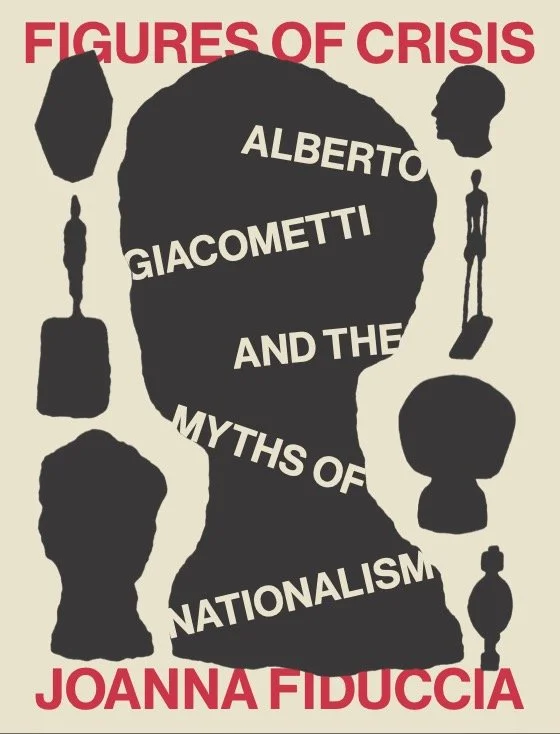Joanna Fiduccia is an art historian, critic, and Assistant Professor of the History of Art at Yale University, where she studies the creative practices behind modern struggles for representation. At Yale, she specializes in European and American modernism and the historical avant-garde, with a focus on the politics and theory of twentieth-century sculpture. Her teaching and research interests include scale; theories and problems of figuration; the history of attention; ornament and abstraction; twentieth-century representations of gender and race; technologies of modeling and simulation; and experimental research practices. She holds a Ph.D. in Art History from UCLA, and previously taught art history and humanities at Reed College. Her research has been supported by the American Council of Learned Societies, the Society of French Historians, the UCLA Center for European Studies, and the Brown Foundation.
Her first book, Figures of Crisis: Alberto Giacometti and the Myths of Nationalism (Yale University Press, 2026) considers the neglected decade of artwork that separates Giacometti’s surrealist experiments from his iconic postwar sculptures, revealing homologies between his artistic crisis and crises of national identity in modern Europe. Challenging previous explanations of the artist’s return to figuration, she argues that Giacometti’s figures gave form to the experience of social breakdown during the rise of fascism by responding to the protean, exclusionary, and often incoherent models of selfhood generated by European nationalisms in the 1930s and 1940s.
She is currently working on a study of the evolving relationship between political sovereignty and automatism beginning in the late nineteenth century. It explores how automatism, as an artistic tactic as well as an element of our encounters with artworks, came to channel the moral and legal transformations of state sovereignty in the modern world. Through a series of case studies, it tracks competing fantasies of mastery and submission, spontaneity and intention, agency and the loss of control across the discourse of modernism, refracting modern boundaries between the human and less-than-human and anticipating confrontations with the generative technologies and disputed sovereignties of today.
She is the author of essays and reviews on contemporary art for publications including Artforum, Spike Art Quarterly, East of Borneo, and Parkett, as well as numerous catalogues, and was co-founder of the journal apricota. Her curatorial projects include “Coquilles Mécaniques” (CRAC Alsace, 2012) and “The Third, Meaning” (Frye Art Museum, Seattle, 2022). She is also a member of the research collective ESTAR(SER) and a frequent collaborator with the Friends of Attention, a group of artists, scholars, and activists concerned with forms of attention that resist financialization.
Joanna can be contacted at joanna.fiduccia[at]yale.edu

